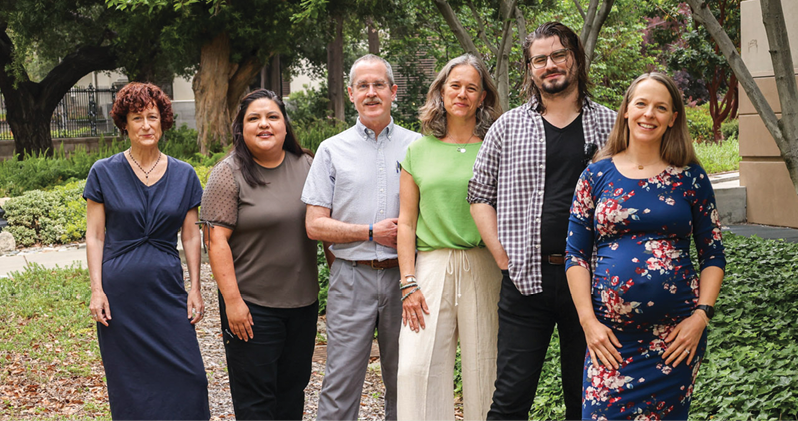Mufti Origins Revealed

Early Mufti messages
were simple yet cryptic. One citing
“Vincent,” above, was a reference to History Professor Vincent Learnihan, who taught at Pomona from 1949-82.
After over 60 years of silence, we founding members of Mufti wish to offer a bit of Pomona history. Over the years we have been pleased to see occasional references to Mufti and are thrilled that once again, “Mufti is near.”
Mufti was started in 1958 by four women, all juniors, with strong senses of humor and mischief. We lived in Harwood Court, a women’s dorm complete with all-seeing head residents, 10 p.m. curfews and overnight locked doors. We admired the occasional strange events that occurred on campus, pulled off by unknown perpetrators: a letter on the College president’s stationery announcing amazing new rules for College behavior, the ringing of the bell in the Little Bridges bell tower during unusual hours of the day and night, and creative enhancements of the Orozco mural in Frary Dining Hall.
Who were the perpetrators and how did they do it? We knew a particular group of men was having all of the fun and we wanted to match them with a creative but subtle response! We started with orange footprints painted on the pathways of the quad. That approach became too time-consuming so we turned to simple messages plastered on mailboxes, lampposts and buildings, signed “Mufti.” We would sneak out of the dorm at 4 a.m., post our mysterious messages throughout the campus, go out to breakfast and return in time to attend our 8 a.m. classes.
Our senior year, we were “pillars of the community.” Our group included the president of the Associated Women Students, the chair of the AWS Judiciary and several members of the senior women’s May Court. Who would guess that we were Mufti?
By then living in Blaisdell, a senior-sophomore women’s dorm, we recruited
four sophomores who committed to carrying on the Mufti legacy with whole-hearted devotion. And that they did! We have lost track of those who carried the torch, but we toast you all.
We had such fun breaking the dorm rules and making people pause to wonder who could be behind the messages. We have unearthed a few original Mufti messages. They are simpler than those shared in the Pomoniana piece (Winter 2023), but we are thrilled that Mufti has survived and evolved and we say, “All Hail.”
—Jean Wentworth Bush Guerin ’60
Alice Taylor Holmes ’60
Martha Tams Barthold ’60
Thomasine Wilson ’60 (RIP)
Another Generation’s Protests
In 1980, students of The Claremont Colleges held the largest anti-Reagan protest in the country. It was so large and boisterous that a friend who had recently graduated from Pomona saw it on the evening news in Malaysia. We feared so many things should Ronald Reagan become president: nuclear escalation, further environmental degradation, the demise of the middle class—and the loss of women’s right to abortion, only recently won.
There is no satisfaction in being right.
My sign read, “Motherhood is Optional”; a male friend’s said, “Women’s Rights Are Human Rights, Too.” On the verge of adulthood, it was inconceivable that neither would be true 40 years in the future—and much earlier for those without the advantages of place and privilege that we possessed.
So I was gratified to see the very thoughtful and informative article “The Choice I Make” by Dr. Atsuko Koyama ’96 in the latest edition of PCM. Reading “While all of the air has been knocked out of me as I raise a young girl in a state where legislators and the courts have control over our bodies,” I struggled to breathe, too. Who are we if we don’t have control over our own bodies? Who are we if we are complacent in California while girls and women in Arizona, Texas, Mississippi and too many more states suffer from the loss of their basic human rights?
It took courage for Koyama to write this piece and for our alumni magazine to publish it. Thank you for making us proud.
—Sheri Cardo ’81
Petaluma, California
Remembering Irving Rosenthal ’52
I appreciated the fullness of the obituary for Irving Rosenthal ’52 (Winter 2023). Although I graduated five years later in 1957 and would not have known him there, I became acquainted with Irving in the 1960s when I was a partner in Auerhahn Press, which published Beat Generation writers. One of our poets was John Wieners, much admired by Irving.
—Andrew Hoyem ’57
Honorary Doctor of Letters ’15
San Francisco
On Choice
I really appreciate the article “The Choice I Make” (Winter 2023). We need more people and physicians like Atsuko Koyama ’96. She is so right that choice is not only about abortion. It is about equal access to medical care for all, control over our own bodies. As she says, “Reproductive justice is the right to have children, to not have children, and to raise the children you have in safe, sustainable communities.”
—D.B. Zane ’85
Los Angeles
Editor’s note: Koyama credits the group Women of African Descent for Reproductive Justice with coining and defining the term reproductive justice in 1994.
Families of Children with Rare Diseases
Being the parent of a child with a devastating, ultra-rare disease can be incredibly lonely. It means a lifetime membership in a club you never want to see another family join. So it was with mixed feelings that I read “Moonshots for Unicorns” (Winter 2023) about Zach Landman ’08 and the journey he and his family are going through with their daughter.
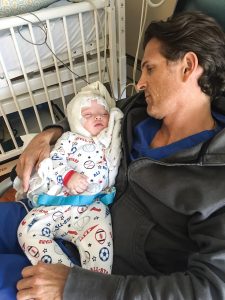
Justin West ’96 holds his son Andrew during one of Andrew’s many stays in the hospital as an infant.
My wife and I are also both physicians. We met in medical school and did our residencies together at Georgetown. We delayed having children until we had the time and resources to care for them. Our third child, Andrew, was born when we were in our early 40s, a period with higher risks for both moms and babies.
Andrew’s first few months of life were like that of our first two children. Then, in a subtle flicker of his left foot, our lives changed forever. Over the course of a few weeks Andrew’s seizures became more dramatic. He went from a few a day to dozens. He spent over 100 days of his first year of life in hospitals across Southern California as we desperately raced to find a medication to make his seizures stop.
Andrew will be 6 years old in April. His seizures have slowed down, but his profound developmental stagnation persists. Andrew functions at the level of a 5-month-old. I have never heard his voice. I have never seen him walk. Without a dedicated treatment we will be caring for an ever-growing infant for the rest of his life and ours.

West plays with Andrew, left, Colin and Carolyn in 2019. His children are now 6, 7 and 9.
Like Zach and his wife, we are not willing to accept Andrew’s fate. Our KCNT1 Epilepsy Foundation is collaborating with more than a dozen teams around the world looking into drug repurposing, new small molecules and gene therapies to save Andrew’s life.
Along the way we have been fortunate to have received advice and assistance from Pomona alumni including Jeffrey Raskin ’03, M.D., Emil Kakkis ’82, M.D., Ph.D., and Jennifer Doudna ’85, Ph.D. We are also working on building a multidisciplinary team of Pomona students to help with our foundation initiatives.
The rare-disease pathway is beyond challenging. I am forever grateful to Pomona for preparing me to take on seemingly insurmountable challenges and for giving me the chance to be part of a community that comes together to help people in need.
—Justin E. West ’96
Newport Beach, California
Kcnt1epilepsy.org
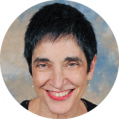


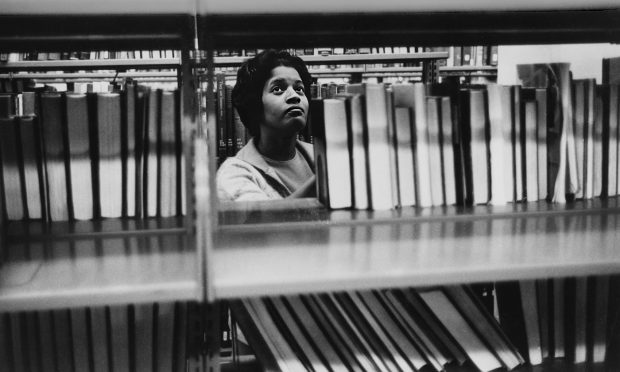
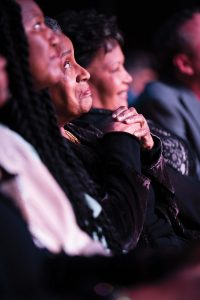
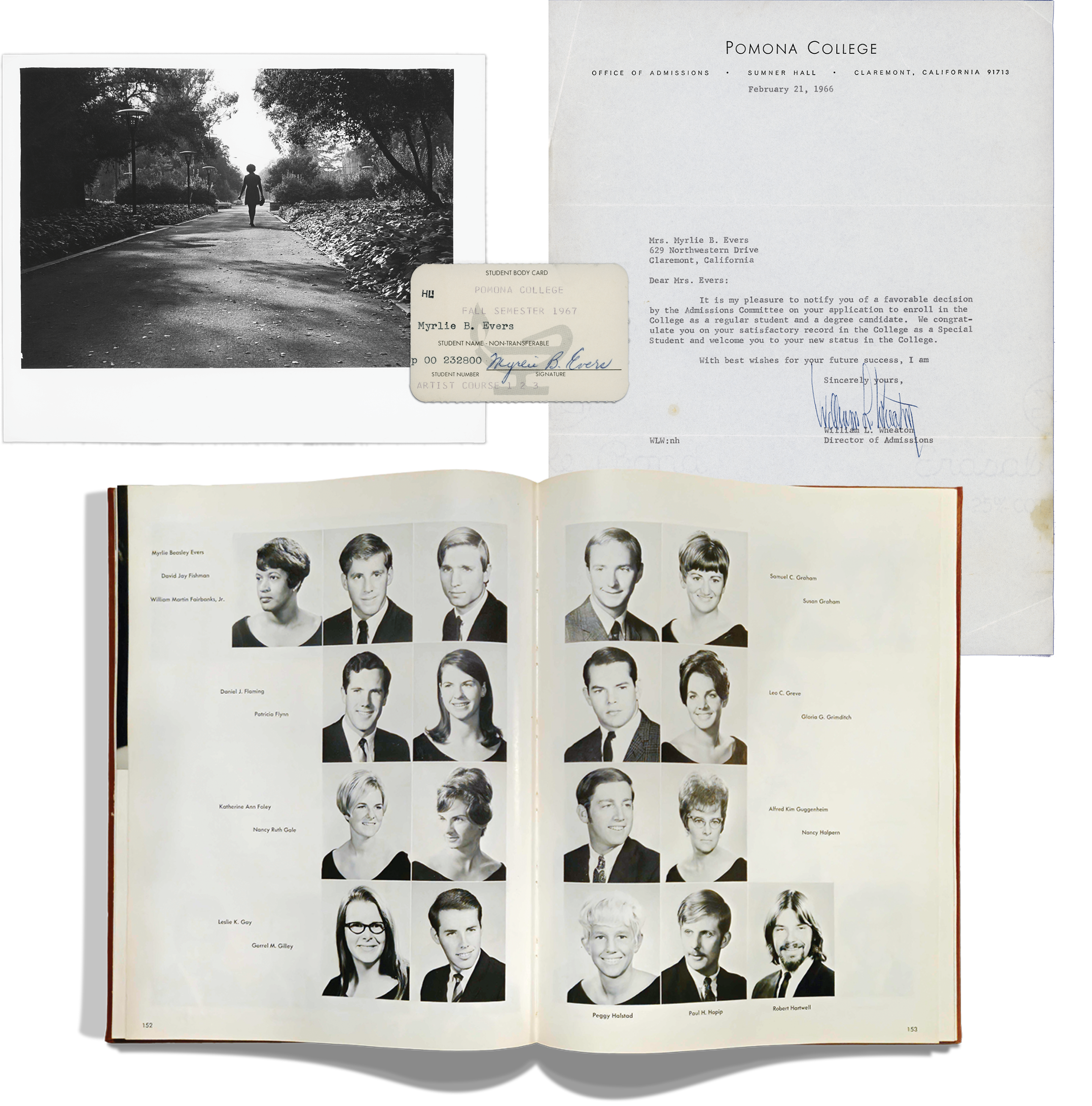
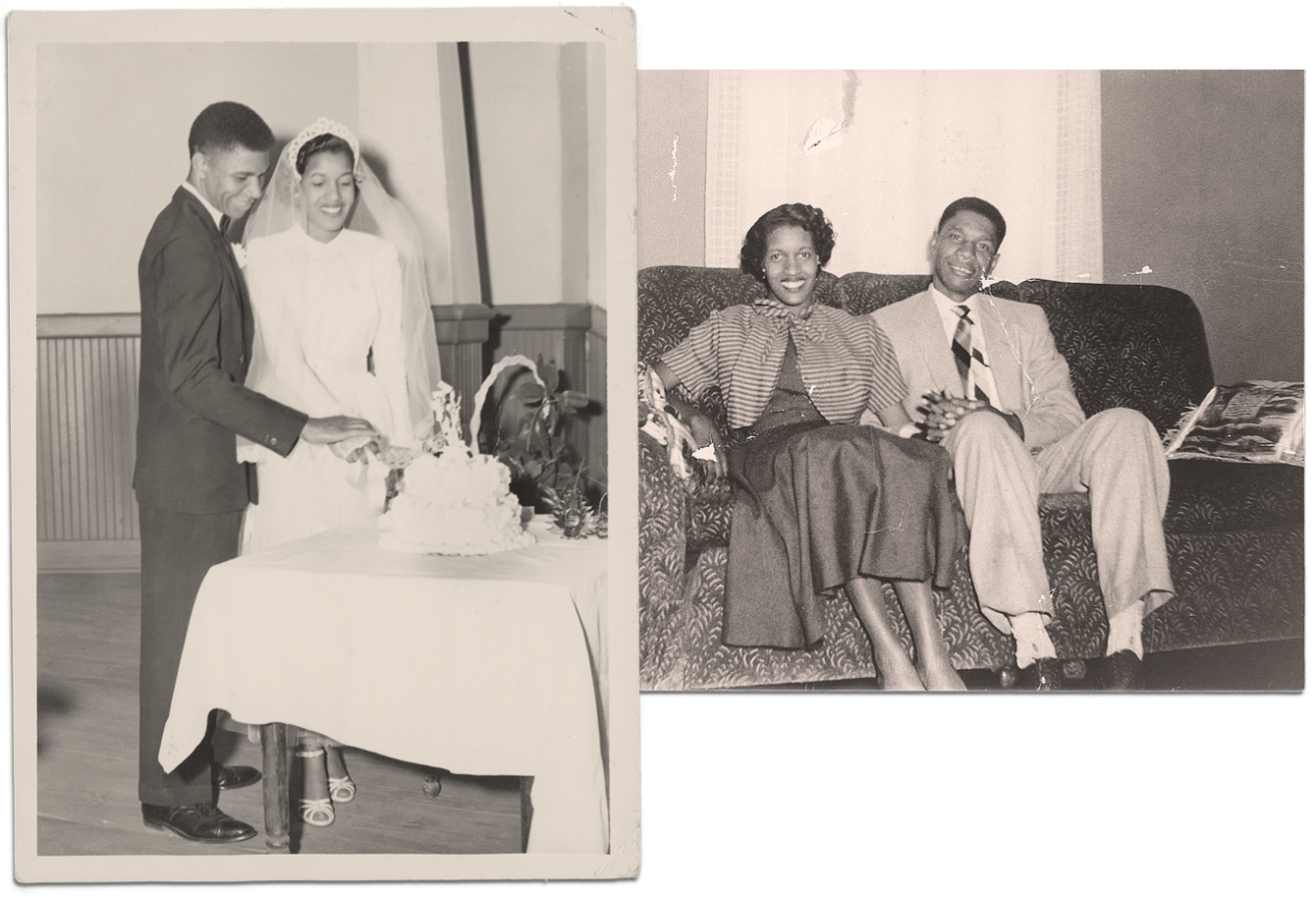
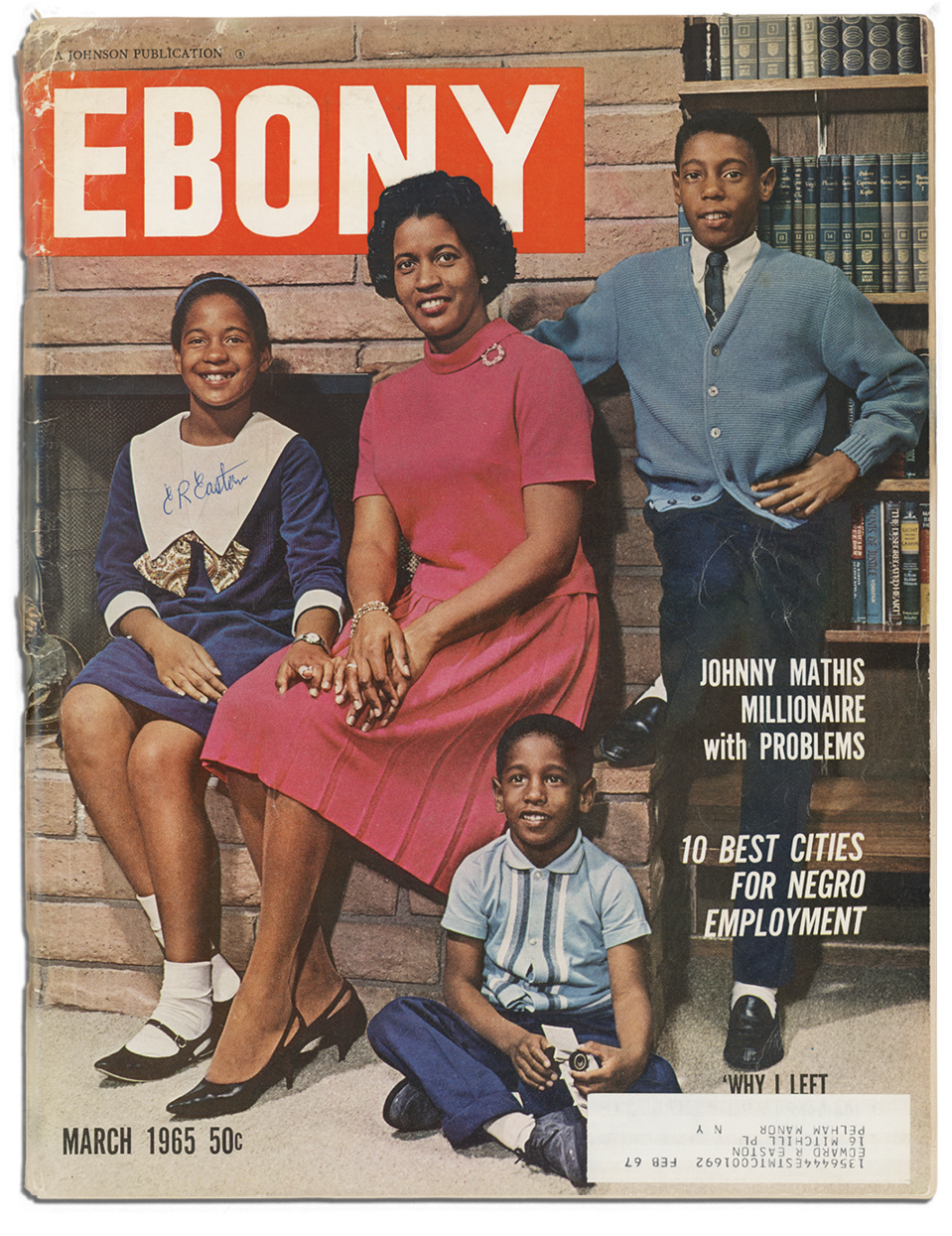
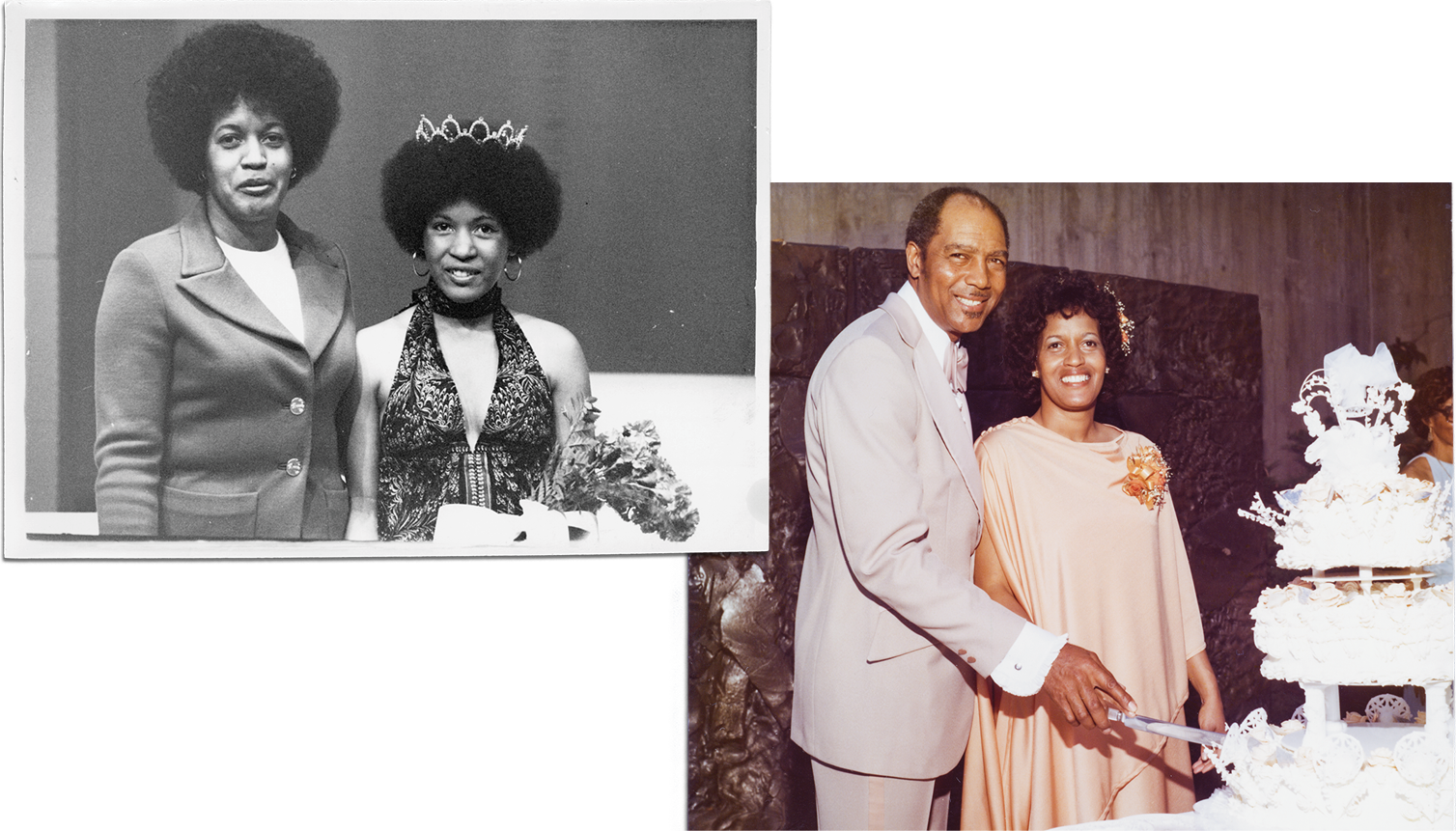
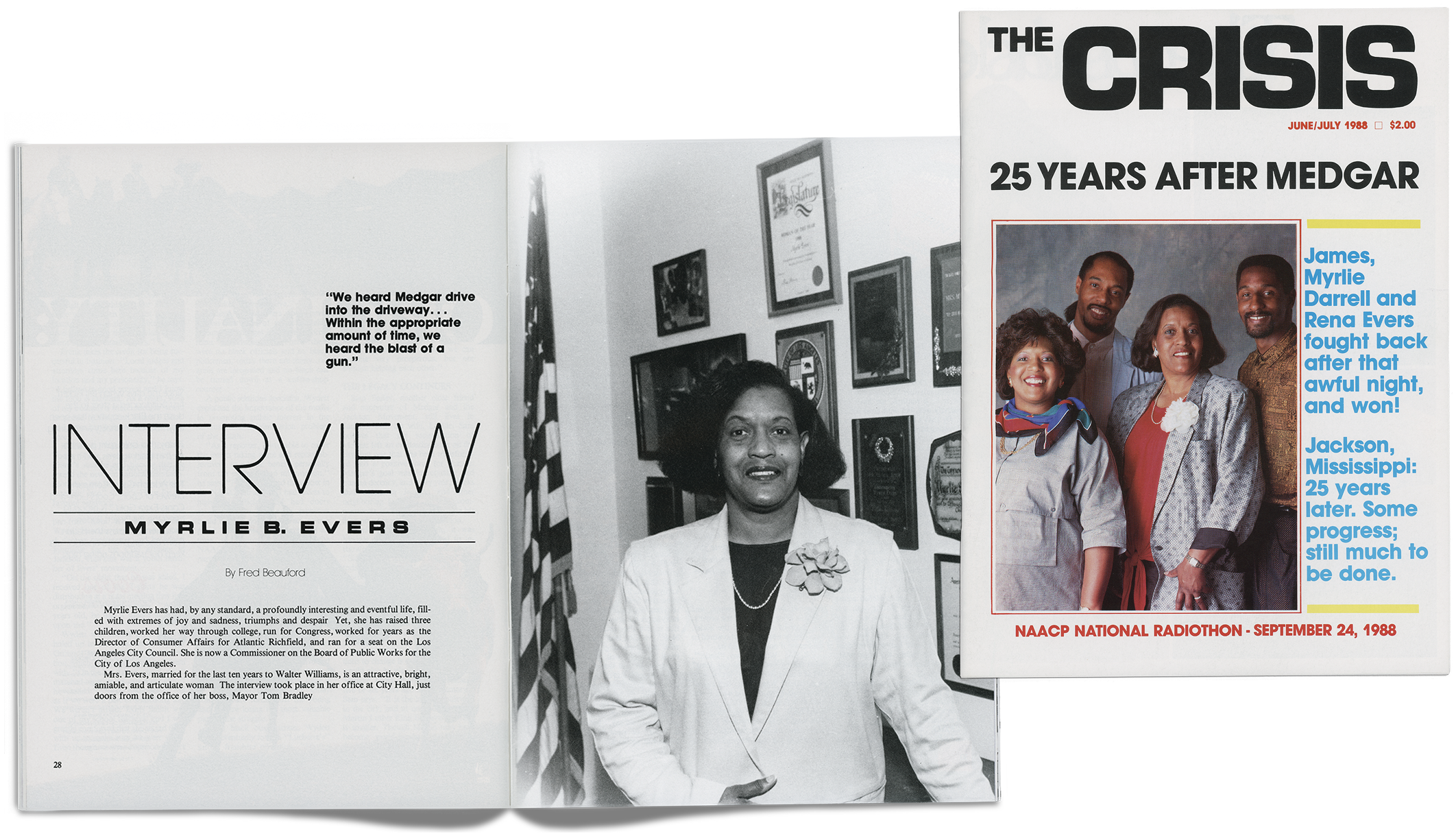
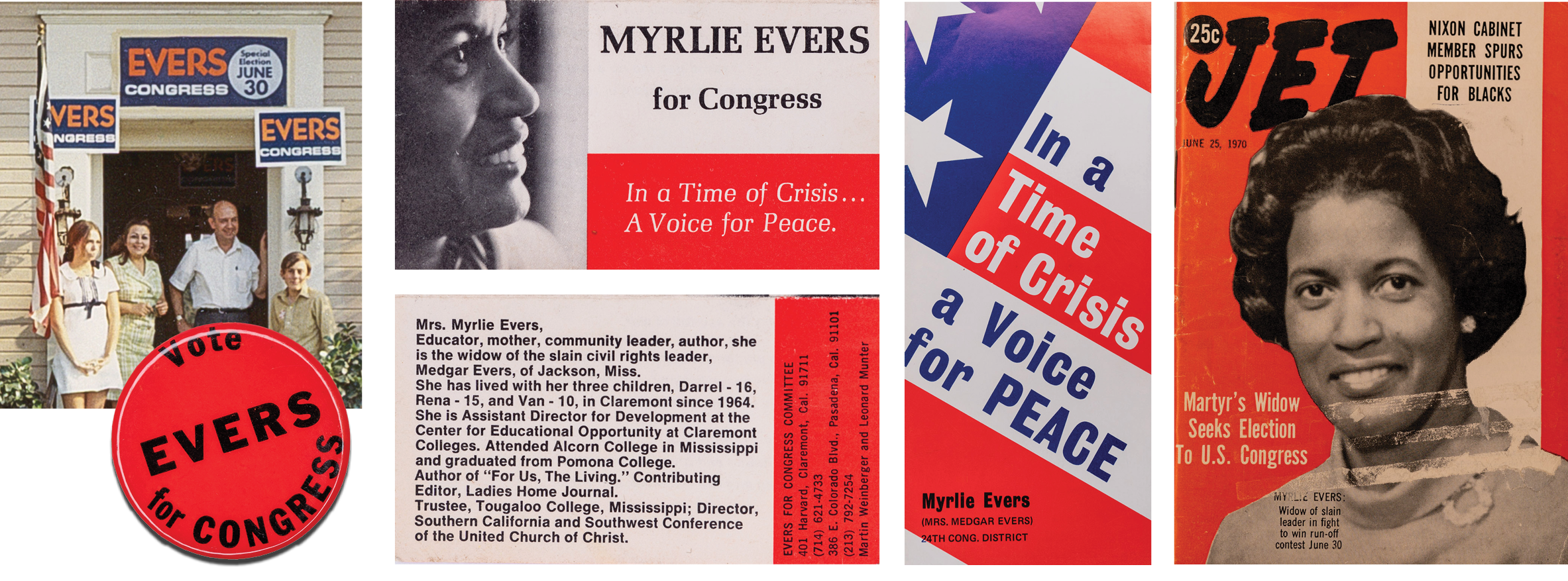
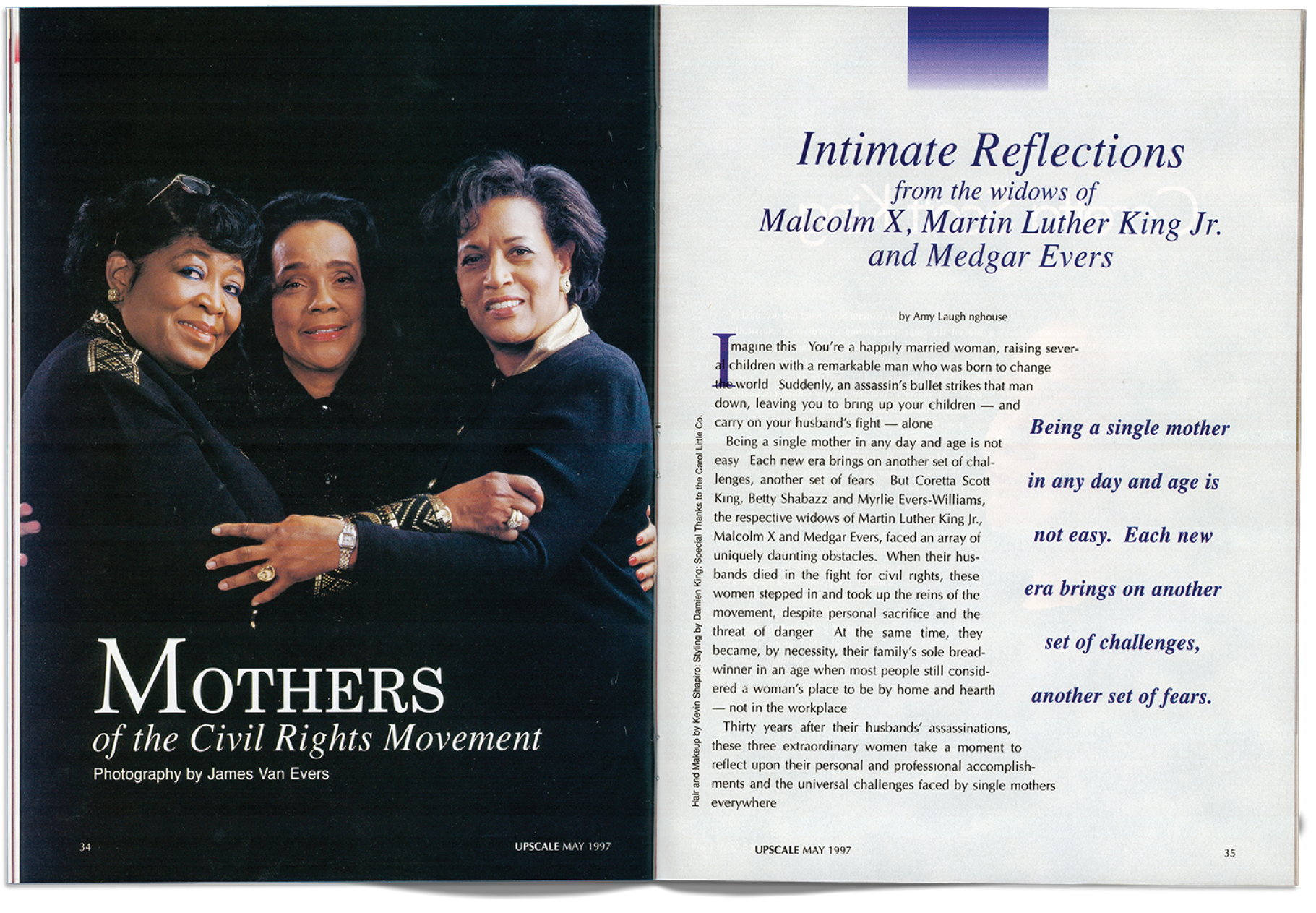
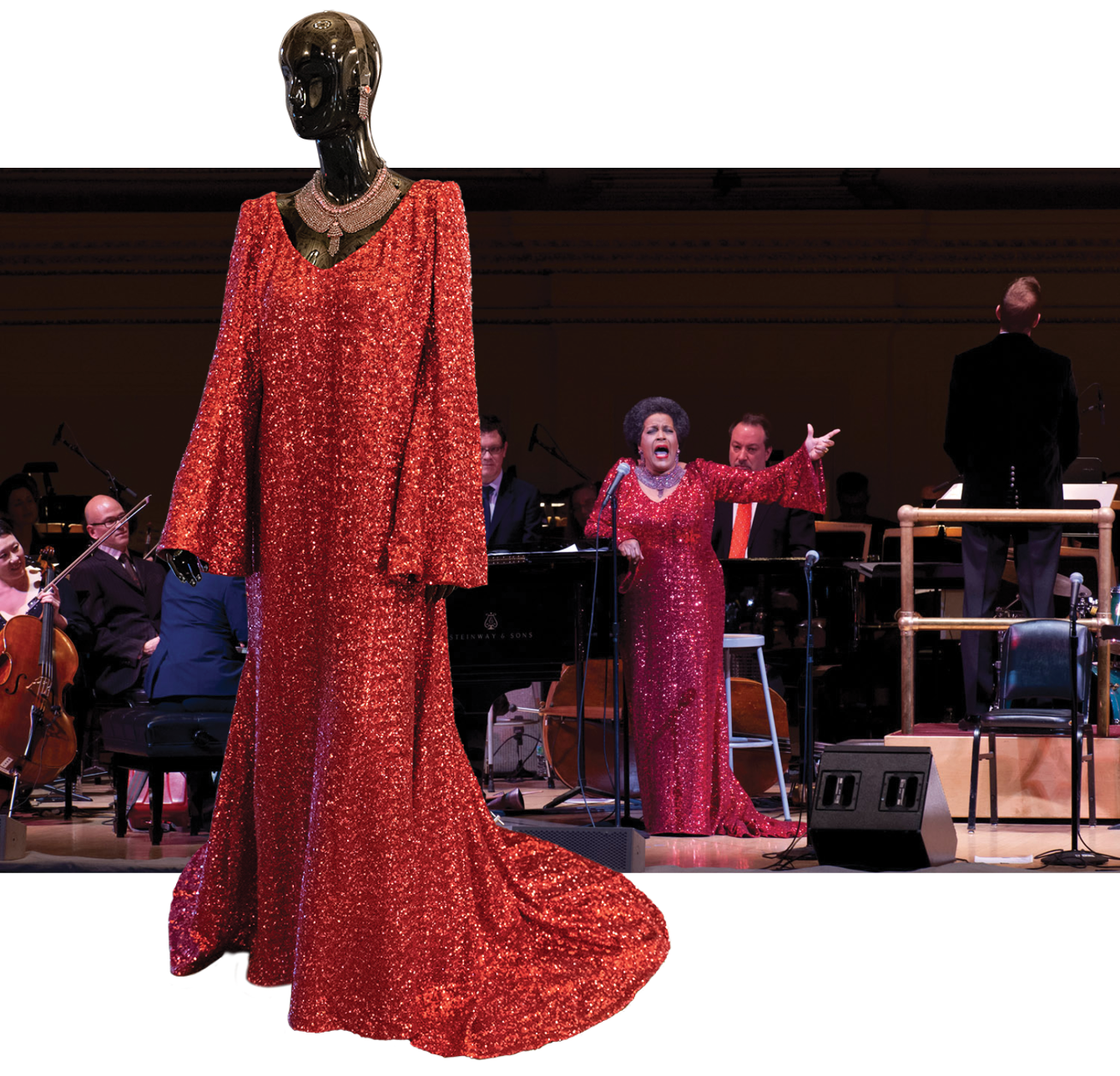
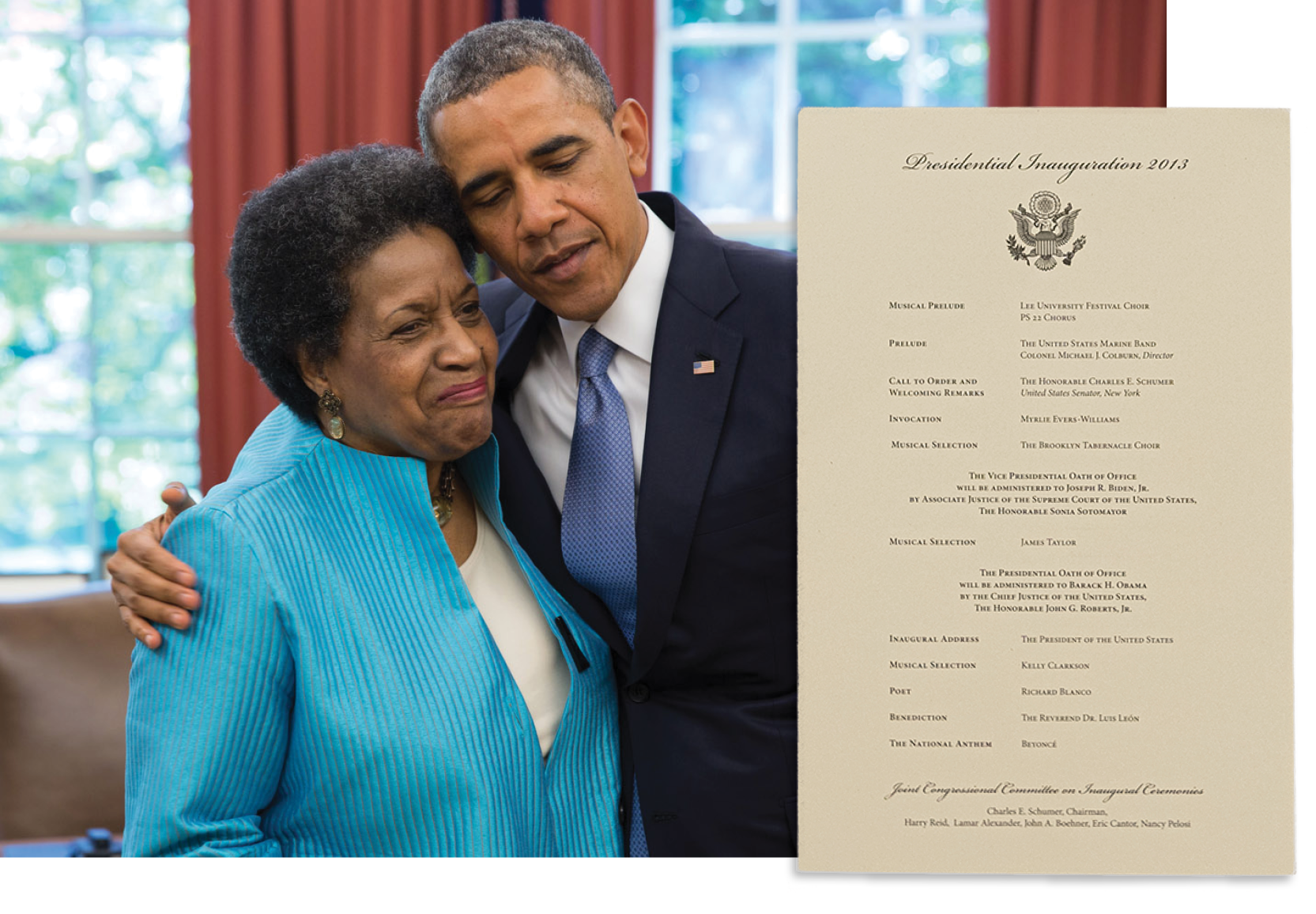
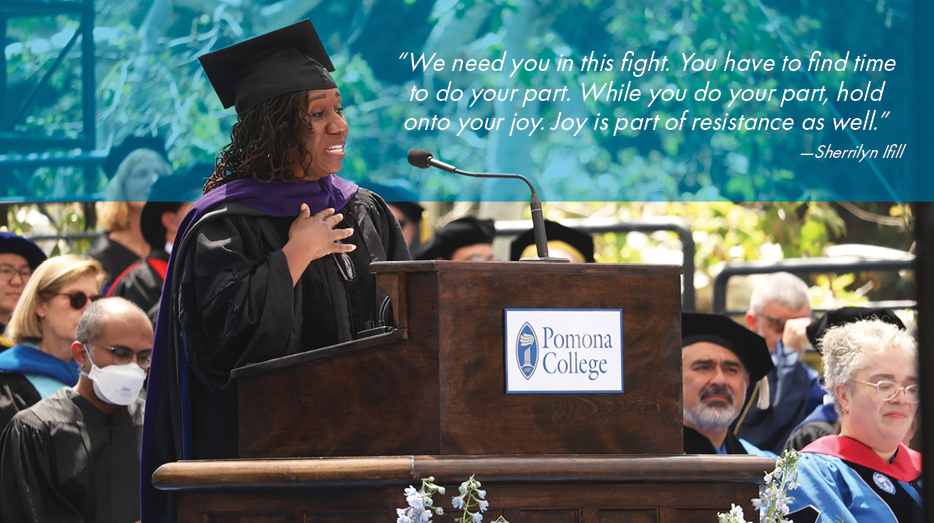
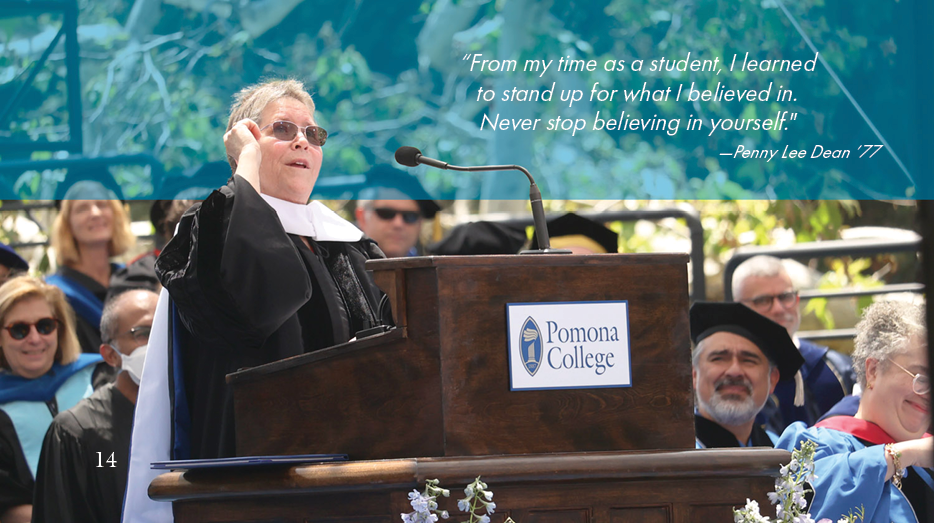
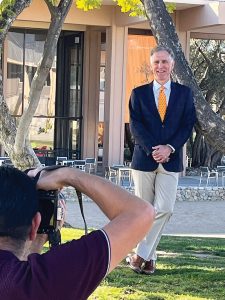
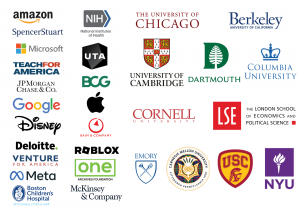 Speaking broadly, last year’s Class of 2022 was similar to many other Pomona classes: About 71% secured jobs, internships or entered military service after graduation, and 21% were pursuing further education. Another 3% received fellowships, 2% began service opportunities and 3% had other plans.
Speaking broadly, last year’s Class of 2022 was similar to many other Pomona classes: About 71% secured jobs, internships or entered military service after graduation, and 21% were pursuing further education. Another 3% received fellowships, 2% began service opportunities and 3% had other plans.
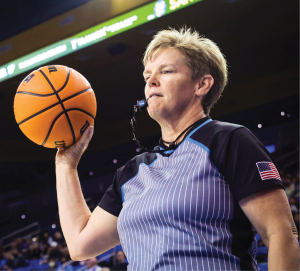 In a banner year for women’s college basketball, Melissa Barlow ’87 was in the middle of an NCAA tournament that garnered record ratings.
In a banner year for women’s college basketball, Melissa Barlow ’87 was in the middle of an NCAA tournament that garnered record ratings.